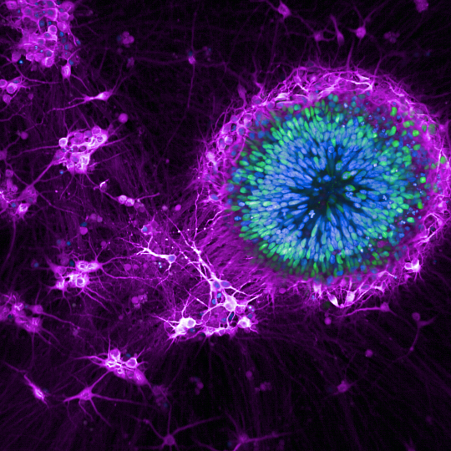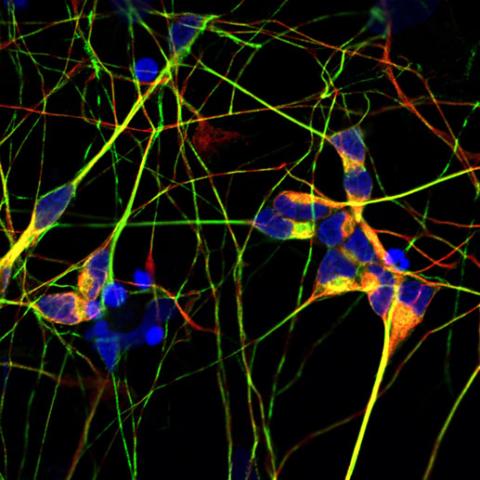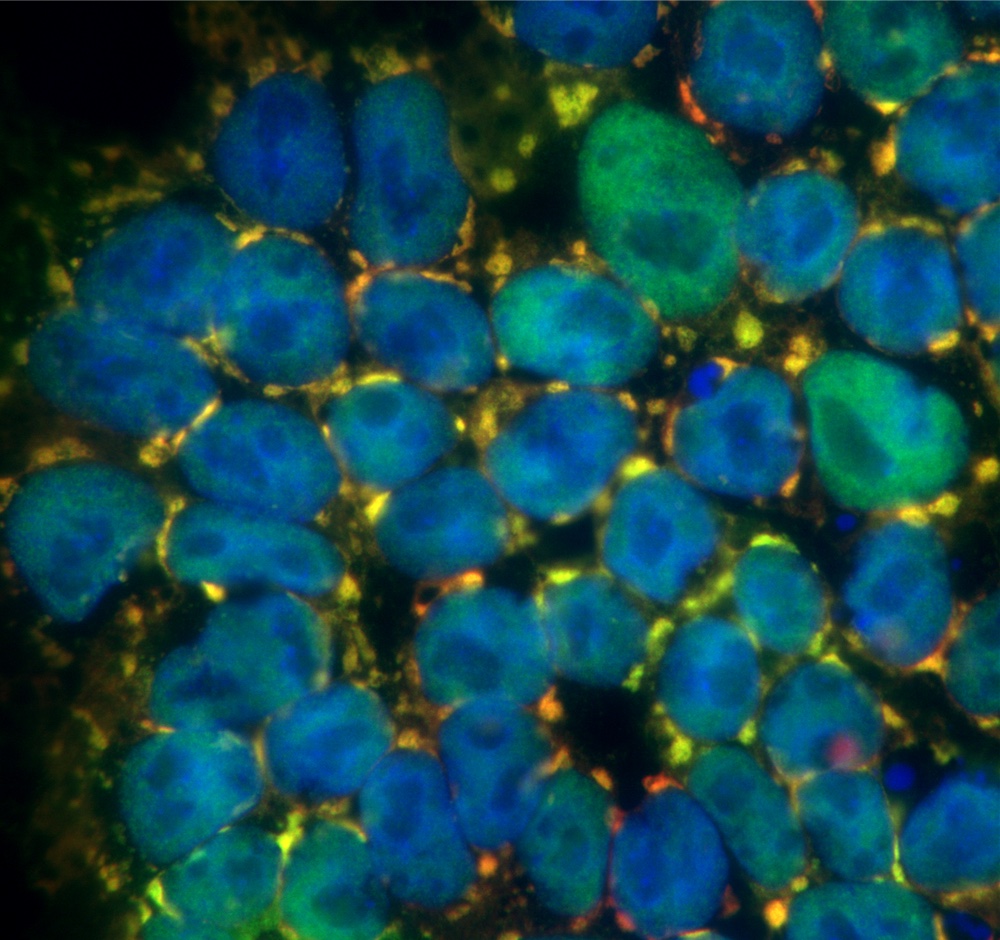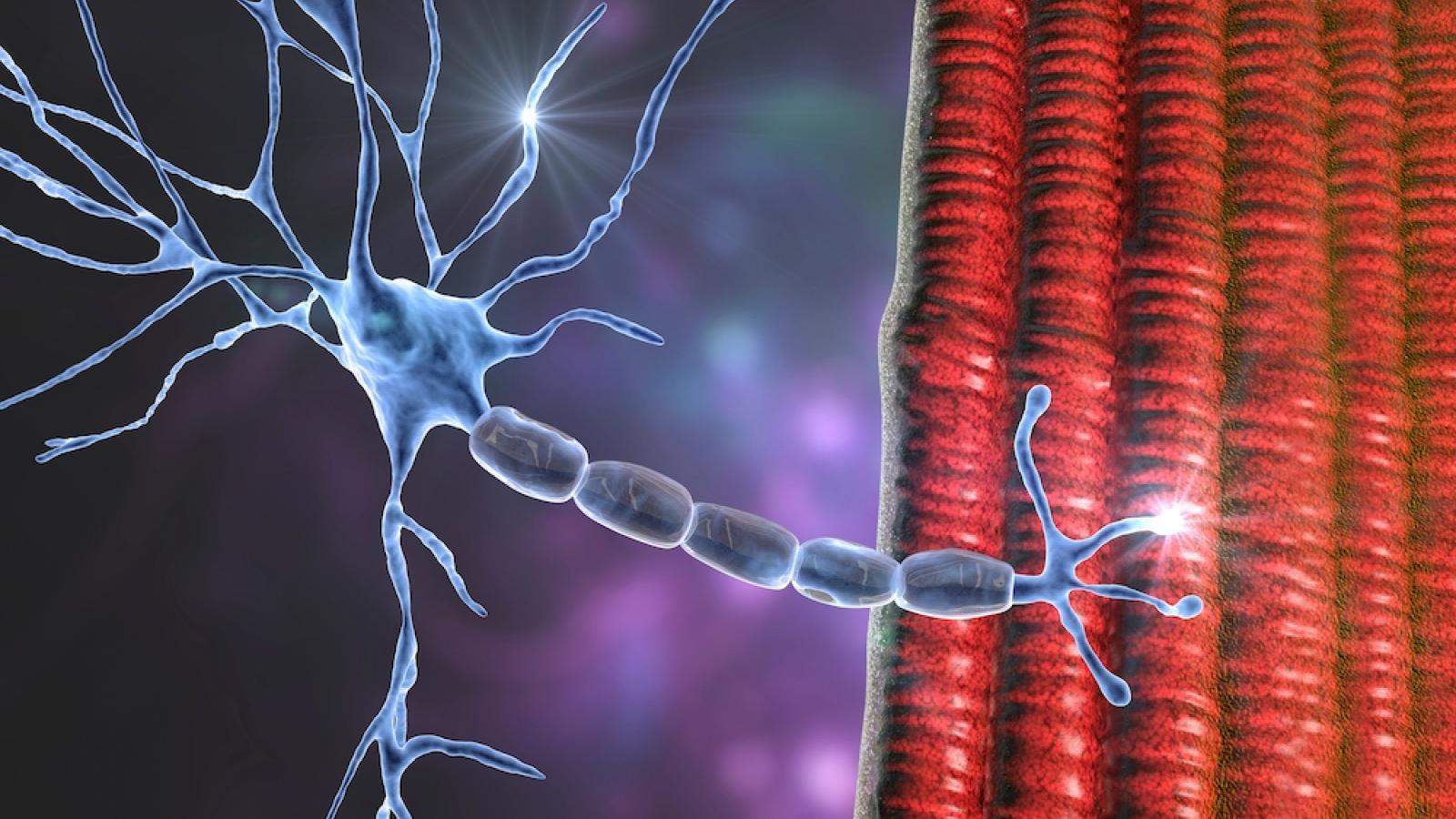Why motor neuron disease?

iPSC cells. Credit: Sarah Mizielinska
Motor neuron disease (MND) is a neurodegenerative condition that affects the motor neurons, the nerves that control muscles. The degeneration of motor neurons means that they are unable to send messages to the muscles, leading to muscle weakness. MND can cause a wide variety symptoms, which may include movement and mobility problems, muscle cramps and spasms, and difficulties in swallowing, speaking, and breathing. There are several different types of MND, with amyotrophic lateral sclerosis (ALS) being the most common. Some symptoms of MND can be managed to help improve the quality of life for people with the condition, however there is currently no known cure.
The MND Thematic network brings together researchers across the UK DRI to better understand what causes MND and transform these insights into treatments for the condition. UK DRI researchers have a breadth of MND expertise including molecular and cellular biology, gene therapy, and clinical trials. The aim of the MND Theme is promote collaboration and build a streamlined approach for moving mechanistic understanding of MND into evidence-based clinical trials.
Latest news


Research
Read more about the research output of the UK DRI MND thematic network and its members in the 'Research' tab

